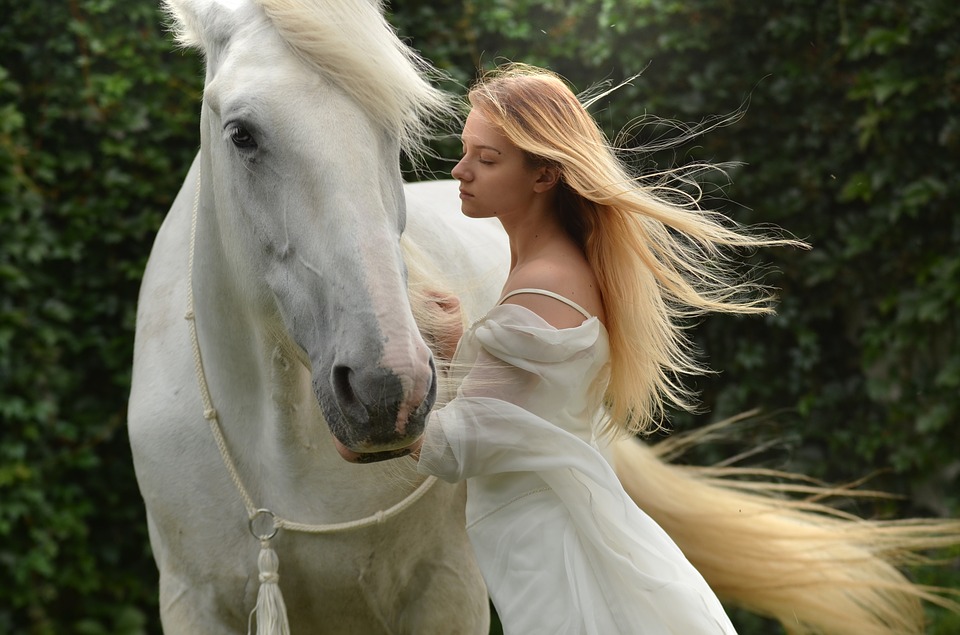The Power of Letting Go
One of the most profound concepts I’ve learned in both relationships, and horse training, is the power of letting go.
In horse training, many adhere to a philosophy that you need to control your horse. There are numerous devices available to do so.
In reality, when we control our horse rather than work with them, there is a deep chasm both in their training and in our relationship. When you become unable to control them, or someone rides them who is unable to, their “training” is gone.
Many horses my go their whole life being controlled. In general, horses are docile and submissive. It’s common to talk about breaking a horse. Many horses are broken, submitting to humans, and losing their spirit.
Horses who never lose their spirit or fight to keep it are the ones you gain leaps and strides with by learning to let go. They are also often the ones who end up being abused an abandoned. Us humans really like to believe we are in control, and tend to destroy things when we are unable to have that control.
Your relationship with any horse, no matter how docile will be limited and shallow when it is based on control. Likewise, if your relationships are based on control, they will never truly be genuine.
Letting Go With Horses
When a horse is misbehaving, similar to our reaction in human relationships, our natural reaction is to tighten our control. We want to stop the thing that we don’t like happening.
If a horse is anxious and jumping around, we tighten our grip so they don’t break free.
As we tighten our attempt at control, (horse or human) this creates greater anxiety and increased behavior problems. With tight control others tend to fight more against our desires.
We then feel we need a way to gain greater control.
When an anxious horse is feeling that they are in danger. Their limbic system kicks into gear.
Their response is fight–a horse that kicks, rears, bucks etc. Flight–a horse that is pulling against the lead rope and would get away if allowed. Or freeze–the “calm” horse, that is in reality, often shut down.
When control is tightened on a horse whose natural reaction to danger is to flee, they either panic even more–or shut down. With a lot of horses and in a lot of relationships, we fight against these instincts until shut down occurs.
This may feel like success, but it is not.
When shut down doesn’t occur, behavior problems increase.
Conversely, think of the difference when a horse on a lead is anxious and allowed, even encouraged, to move their feet, or snort, or jump around for a bit.
This allows a release of the anxiety, because there is choice. They can run if they want. They can reset their thinking brain and realize, there’s nothing to be worried about, especially if they aren’t having to fight against the human they are supposed to be working with. With some space they can realize, I didn’t need to get away. I’m okay.
The limbic system is no longer on heightened awareness. As the limbic system releases control and begins to feel safe, the thinking brain comes back online and the ability to teach the horse returns.
If instead control is exerted through the process of anxiety, the horse reacts to the mechanisms of control, but they don’t learn.

Letting Go in Relationships
These concepts are likewise true in relationships. Child, sibling, friend or partner, when we feel things are going awry, we tend to tighten our grip. During these times we should in fact be letting go. Loosening our grip and instead being present. This allows others to not feel threatened or trapped.
It is a pretty natural reaction to want control. We have in mind how others should behave and that is what we want from them.
In relationships the reality is that we cannot control others. Each individuals is a free agent, with their life to live. Healthy relationships must be a combination of two parties meeting at a mutually agreed upon conclusion, rather than one partner dictating the relationship.
If we try to tighten our grip, we often scare others, causing them to fight against us. But what if, in those times, we are simply present. We listen instead of talk. This, in the end, helps them and us learn how to do better.
Consider the adolescent–just the fact that they are told not to do something increases their resistance. (You can read about that here.) Left alone to complete tasks they are aware are important, they will often complete the task and develop intrinsic motivation at the same time.
Consider the romantic relationship that seems to be dwindling.
If it is one we care deeply about, we tend to hold on tight. This can push the other person farther away.
The simple reality is we can coerce, manipulate, cajole, but we cannot control our horses or others, unless they turn that control over to us. Most often when control is yielded through force, shut down occurs–where the emotions and needs of the other person are repressed.
Each moment we control another, we are damaging our relationship with them.
Instead of control, think of providing love, guidance, suggestions, teaching, opportunities. These approaches will encourage the relationship and develop mutual respect whether with horses or humans.
Letting Go for Mental Wellness
Holding on tightly to those things we want, but over which we have no control, creates a plethora of mental health problems.
It creates anxiety (read a great top for managing anxiety here) as we stress about how to control those things we can’t, or shouldn’t.
Depression may develop from an inability to make things happen as we believe they should.
Or, we may respond with anger, resentment, and feelings of being victimized.
The reality is there are many things we can’t control in our lives, and many things we shouldn’t try to control.
When we focus our energies on letting go and being okay with an outcome different than that which we most believe should occur, then we can move forward and take that energy, and direct it into matters we should be focusing on, like how we can improve ourselves.




One thought on “The Power of Letting Go”